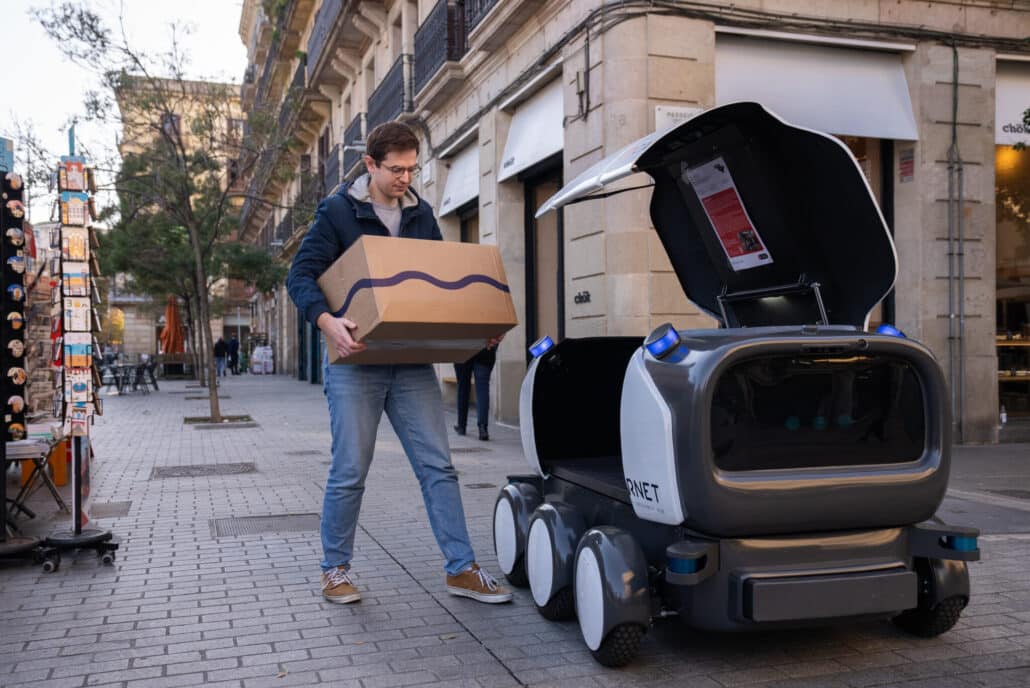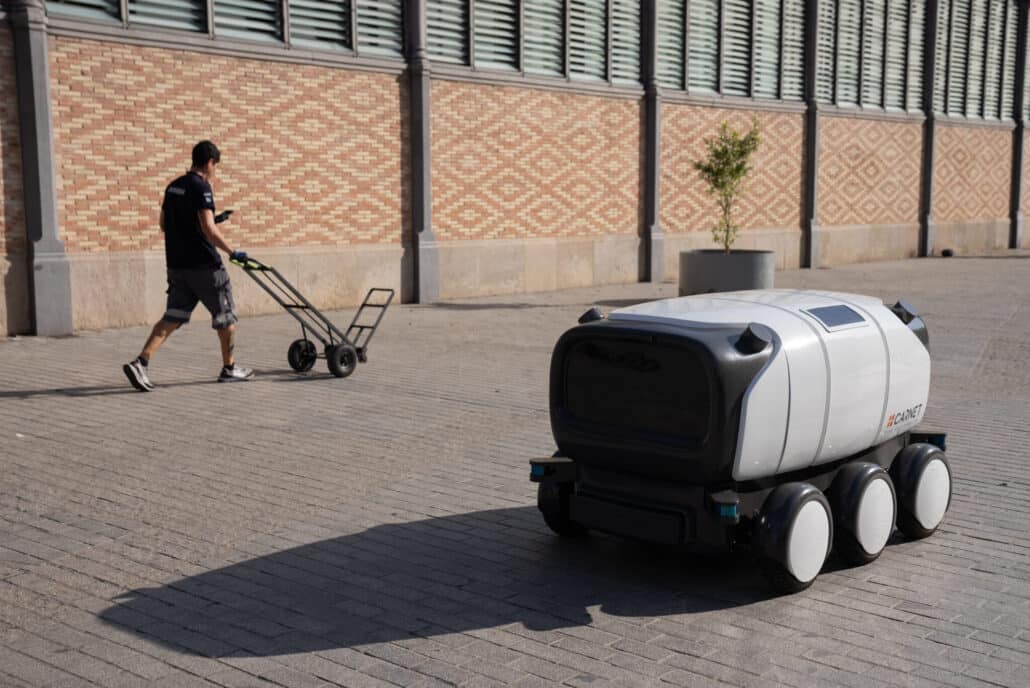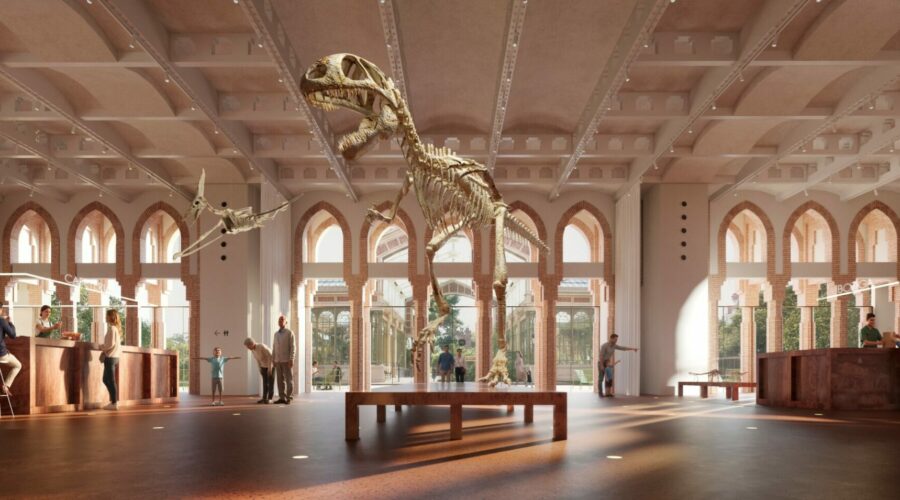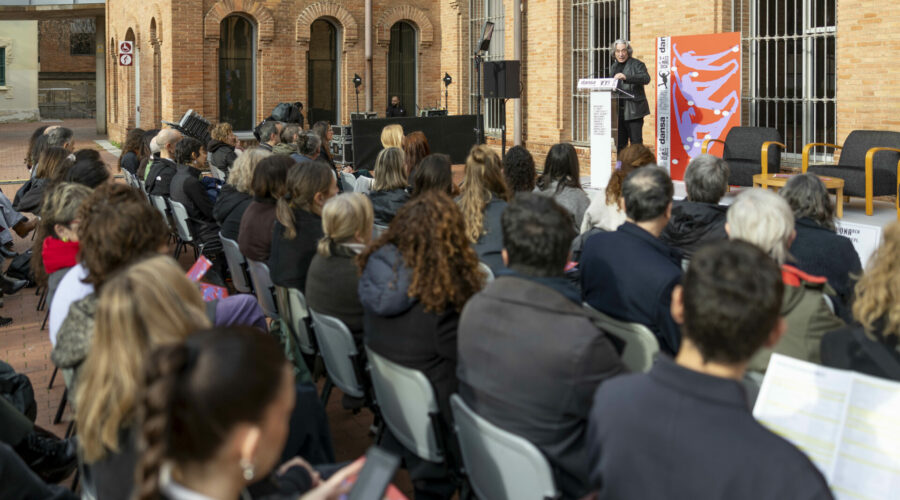The city of Barcelona positions itself as an urban laboratory for innovative solutions by implementing tests with the autonomous robot Ona. This project, led by the Universitat Politècnica de Catalunya (UPC) in collaboration with CARNET and Vaivé Logistics, seeks to reduce the environmental and acoustic impact of goods delivery in densely populated urban areas.
 A sustainable alternative for the last mile
A sustainable alternative for the last mile
The tests are taking place in the surroundings of the Centre Cultural i de Memòria del Born, where the Ona robot performs parcel delivery tasks. This project is part of the Botnet initiative, which aims to reduce 20% of the traffic and 40% of the emissions generated by traditional transport in Barcelona. The electric robot stands out for being silent, non-polluting and designed to interact in a friendly way with pedestrians. In addition to optimizing logistics, the acceptance of this technology among citizens is being evaluated, a key aspect for its integration into urban life.
The proposed model includes nearby distribution centers from which robots could replace traditional vans.
Innovation in action
The project, developed with a grant of more than 145,000 euros from the Barcelona City Council and Fundació “la Caixa”, focuses on creating technological solutions for urban challenges. The funding is part of a strategy to encourage research that promotes sustainability, community well-being and ecological transition.

Barcelona as an urban laboratory
This initiative is aligned with the City Council’s strategy of turning the city into an experimental space for technologies of public interest. The objective is to enable universities, companies and research centers to test their innovations in real environments, maximizing their social and economic impact.
The deputy mayor for Economy and Economic Promotion stressed the importance of taking advantage of the city’s scientific and technological ecosystem. “We want all this scientific capacity to translate into tangible improvements for social welfare and economic progress,” he stressed in relation to the project.
Knowledge transfer as a driver of change
The project is part of the Science and Innovation Strategic Plan 2024-2027, which prioritizes the transfer of knowledge to companies and institutions. With this strategy, Barcelona seeks to consolidate its position as a benchmark in sustainability and innovation, promoting practical solutions that improve the quality of life of its inhabitants.
A promising future for urban mobility
The Ona robot represents a step towards the transformation of urban logistics, combining technology, sustainability and people-centered design. Barcelona reaffirms its commitment to innovation by leading projects that not only solve current problems, but also lay the foundations for a cleaner and more efficient future.



